It may not feel like it but the Europa League gives Arsene Wenger a golden chance at the European legacy he craves
Wenger is obsessed with finally winning the Champions League, but the sad reality is that prospect is significantly fading leaving the Europa League as perhaps his last chance
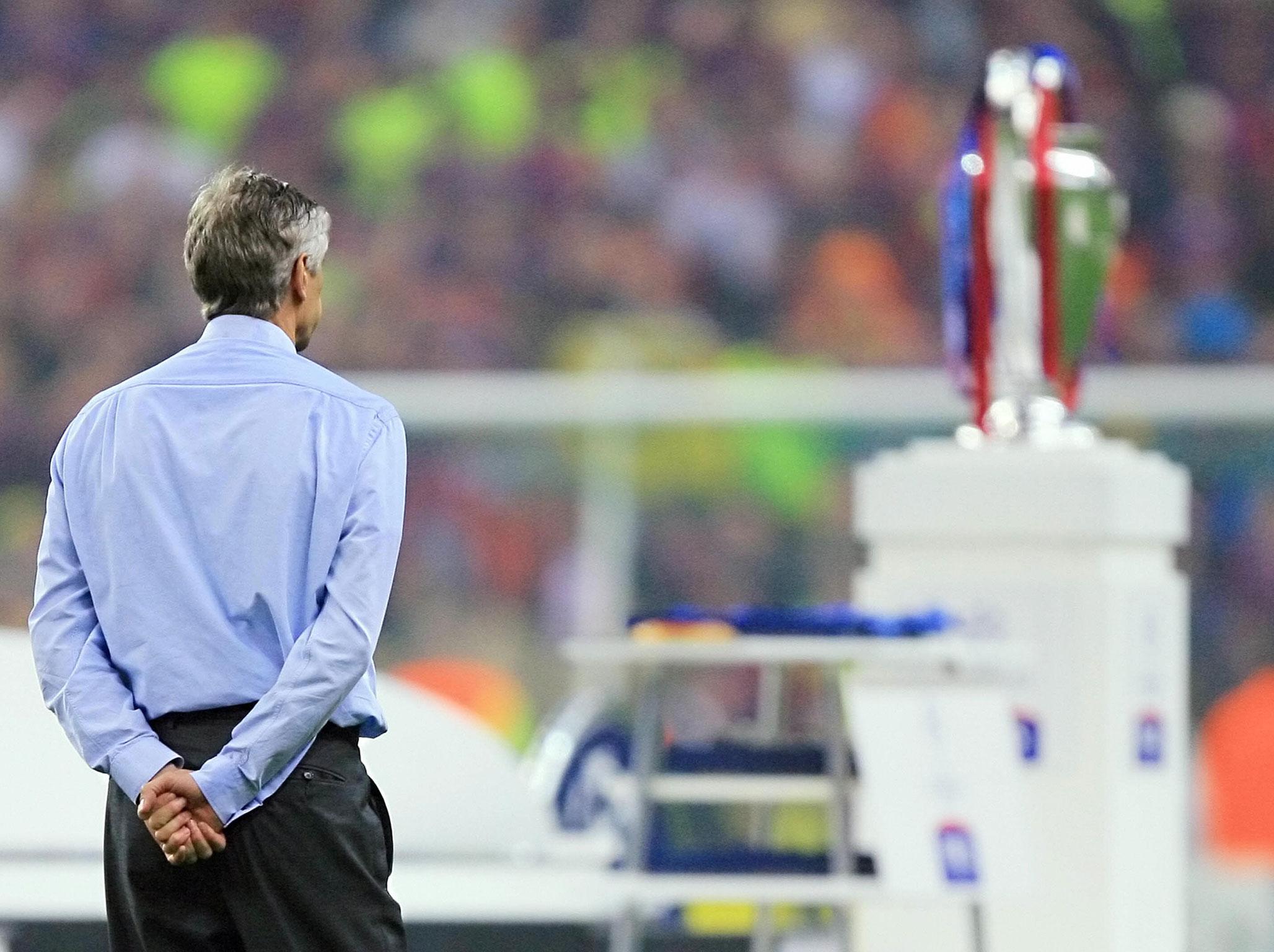
Your support helps us to tell the story
From reproductive rights to climate change to Big Tech, The Independent is on the ground when the story is developing. Whether it's investigating the financials of Elon Musk's pro-Trump PAC or producing our latest documentary, 'The A Word', which shines a light on the American women fighting for reproductive rights, we know how important it is to parse out the facts from the messaging.
At such a critical moment in US history, we need reporters on the ground. Your donation allows us to keep sending journalists to speak to both sides of the story.
The Independent is trusted by Americans across the entire political spectrum. And unlike many other quality news outlets, we choose not to lock Americans out of our reporting and analysis with paywalls. We believe quality journalism should be available to everyone, paid for by those who can afford it.
Your support makes all the difference.As Arsenal and Arsene Wenger prepare to play their first game in the Europa League for 17 years - or, as it was called in 2000, the Uefa Cup - there is a curious little story from that night in Copenhagen that actually feels all the more relevant today.
The disappointed squad had just been beaten on penalties in the final by Galatasaray and, as they sat on their flight back to London at three in the morning, Tony Adams decided to get on the airplane’s public address system. All jokes about how this was your captain speaking aside, this was a serious message, stemming from the centre-half’s journey to sobriety and the kind of mental positivity involved in that.
“It’s not how you protect yourself when you’re falling down that’s important,” Adams said. “What matters is how you get up when you’ve fallen.”
The manager himself was said to look and feel “utterly dejected” after that match, but if that felt a low, what would the 2000 Wenger think of the current situation? Sure, the Uefa Cup was even then little more than a consolation, but it at least came from that being the last time Arsenal failed to qualify from the Champions League group stages, rather than now: the first time they have failed to reach the Champions League proper. There was also the fact they were then undisputedly one of England’s major forces and Wenger one of Europe’s best managers, as he was steadily building his second title-winning side.
The 1999-2000 campaign, after all, had already been the 22-year-old Thierry Henry’s first fine season for Arsenal. The French star had played right through that Uefa Cup run, as had all of Wenger’s best players. So, if the continent’s second-tier trophy still wasn’t quite a primary concern for the Arsenal manager back then, he at least wasn’t putting out a second-string team as he plans to do on Thursday against Koln at the Emirates. He knew the chances of getting that first European trophy, something that still eludes him.
That is one other reason this return to the second-tier tournament makes that last match in it against Galatasaray so pointed, and reminds of a very pertinent curiosity to Wenger’s career. He has not just failed to ever win a European trophy, but is the only manager in history to have lost finals in all of the three traditional Uefa competitions.
He now has a big opportunity to rectify that. There’s an even more timely side, too, that is also to do with that legacy. Wenger is well known to be obsessed with finally winning the Champions League, but the sad reality is that prospect is significantly fading, just as questions over whether he can ever have an appropriate sign-off - a last great achievement - are so rising.
This could be that, in a way that another FA Cup that has lost its allure cannot. This is not to say Wenger should retire if he wins the Europa League this season, but it would be such a significant landmark as he enters his last years as a manager - especially for someone who once said this: “when you have lost the final of a European trophy, you have hit rock bottom”.
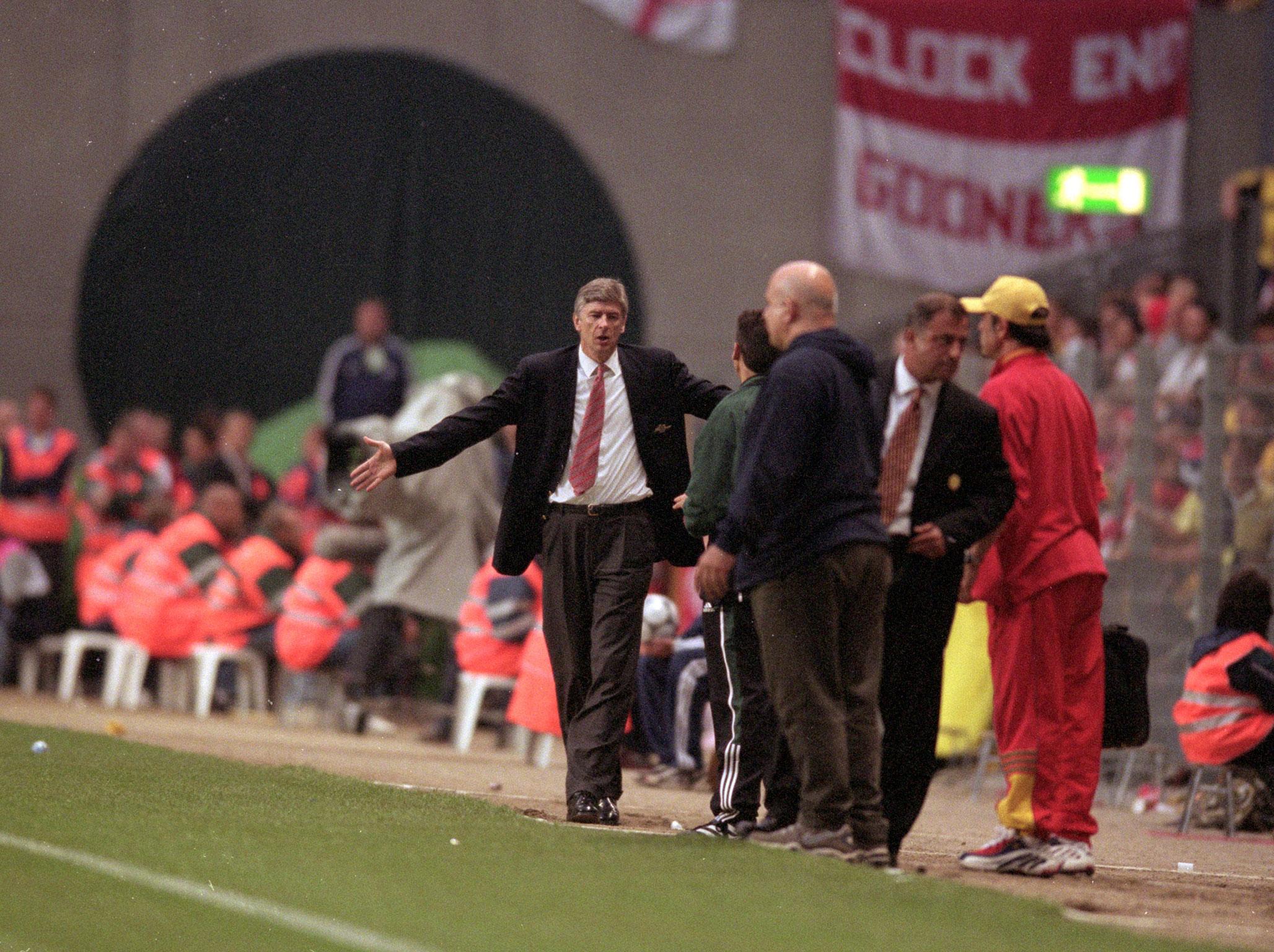
That comment came after Monaco’s 2-0 loss to Werder Bremen in the 1992 Cup Winners Cup final, another major defeat outside Europe’s top tier that was like the Galatasaray match in how it reflected some of the major deficits of Wenger’s managerial career: a remarkable refusal to adapt tactics; a connected self-defeating purism, and the lingering feeling he really should have won so much more given his capabilities, charisma and knowledge.
So much of this sounds familiar. Wenger had put together one of the most exciting sides in Europe at Monaco in 1992 - with the squad for that final featuring talents like George Weah, Lilian Thuram, Youri Djorkaeff and Emmanuel Petit - and duly felt they could take the game to Werder Bremen. Greece’s eventual Euro 2004-winning manager Otto Rehhagel duly out-thought him, perfecting the classic response to a Wenger side before it even became classic. Bremen held firm, intercepted Monaco's angled attacks and then just kept hitting them on the counter.
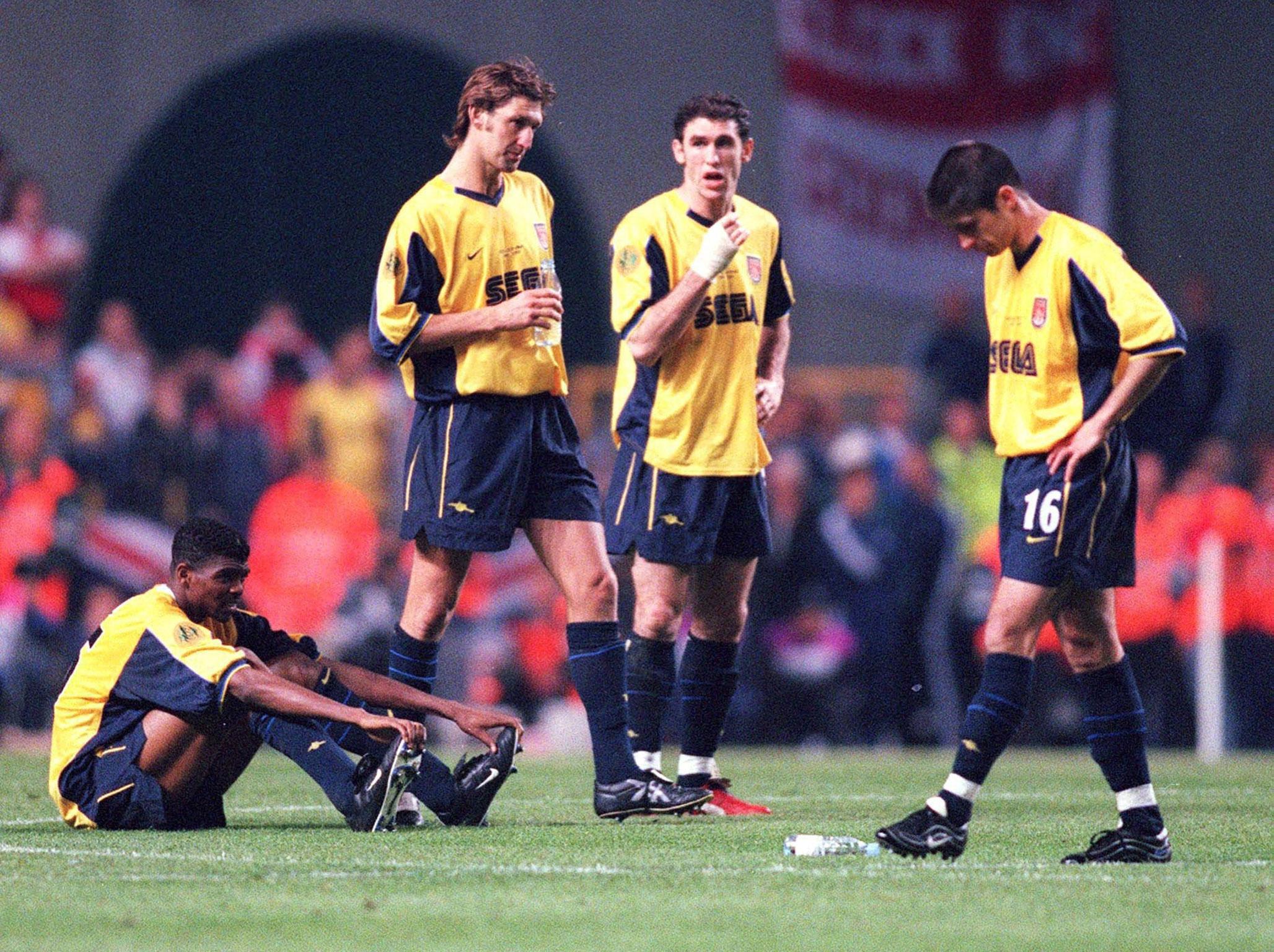
Klaus Allofs and Wynton Rufer scored in a 2-0 win. It was to be Weah’s last major appearance for Monaco, as such frustrations saw him succumb to the temptation of the newly wealthy Paris Saint-Germain, leading Wenger’s assistant Jean Petit to eventually say this: “We had the best players in France. With such a squad, with such players, we wanted to keep the structure in place for subsequent years. It was so frustrating that we didn’t manage to do that.”
It is all the more frustrating such patterns have so repeated themselves. The familiarities of the 2000 defeat to Galatasaray weren’t quite so pronounced, but were undeniably there - right down to the fact it was the third penalty shoot-out Arsenal had lost that season. It had got to that stage even though the Turkish side’s legendary Romanian playmaker Gheorge Hagi had been sent off at the start of extra-time, but Wenger’s side still just couldn’t get going. He later admitted Galatasaray were “more up for it”, and that Arsenal “couldn’t find their true game”. This from a manager who psycho-analyses his side perhaps more than any other.
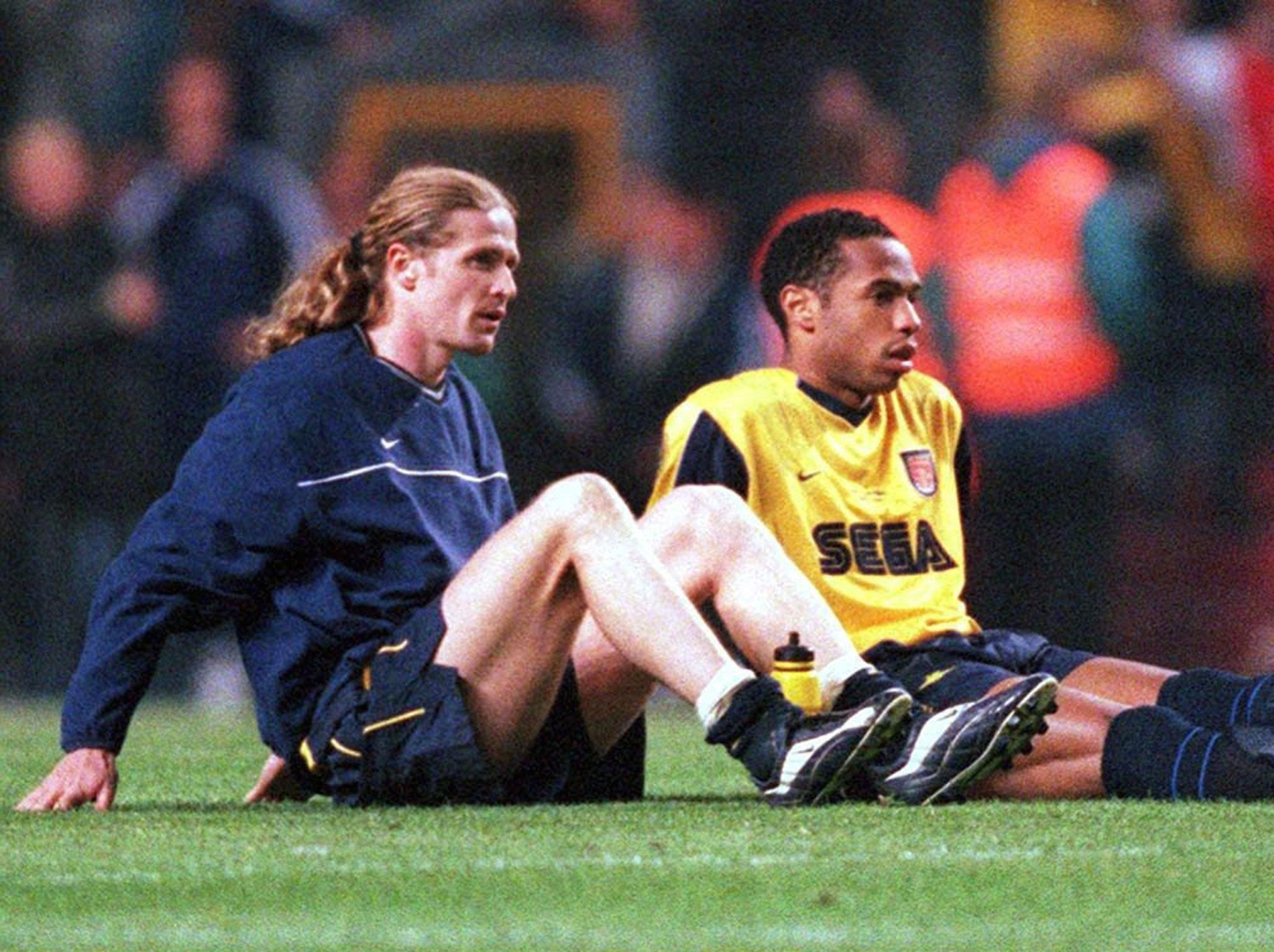
For Wenger's part, both finals were clouded by troubles and tragedies connected to the football. The 1992 match had followed the disaster at Bastia’s Furiani Stadium that saw 18 people die and meant the 1992 French Cup final - that Monaco were also due to play against Olympique Marseille - was cancelled. The 2000 final had been overshadowed by riots between both sets of supporters, following the murder of two Leeds United supporters when they faced Galatasaray in the semi-final.
Wenger is said to have deeply dwelt on both, especially what happened in Bastia. It just added real-world tragedy to the understandable professional frustrations.
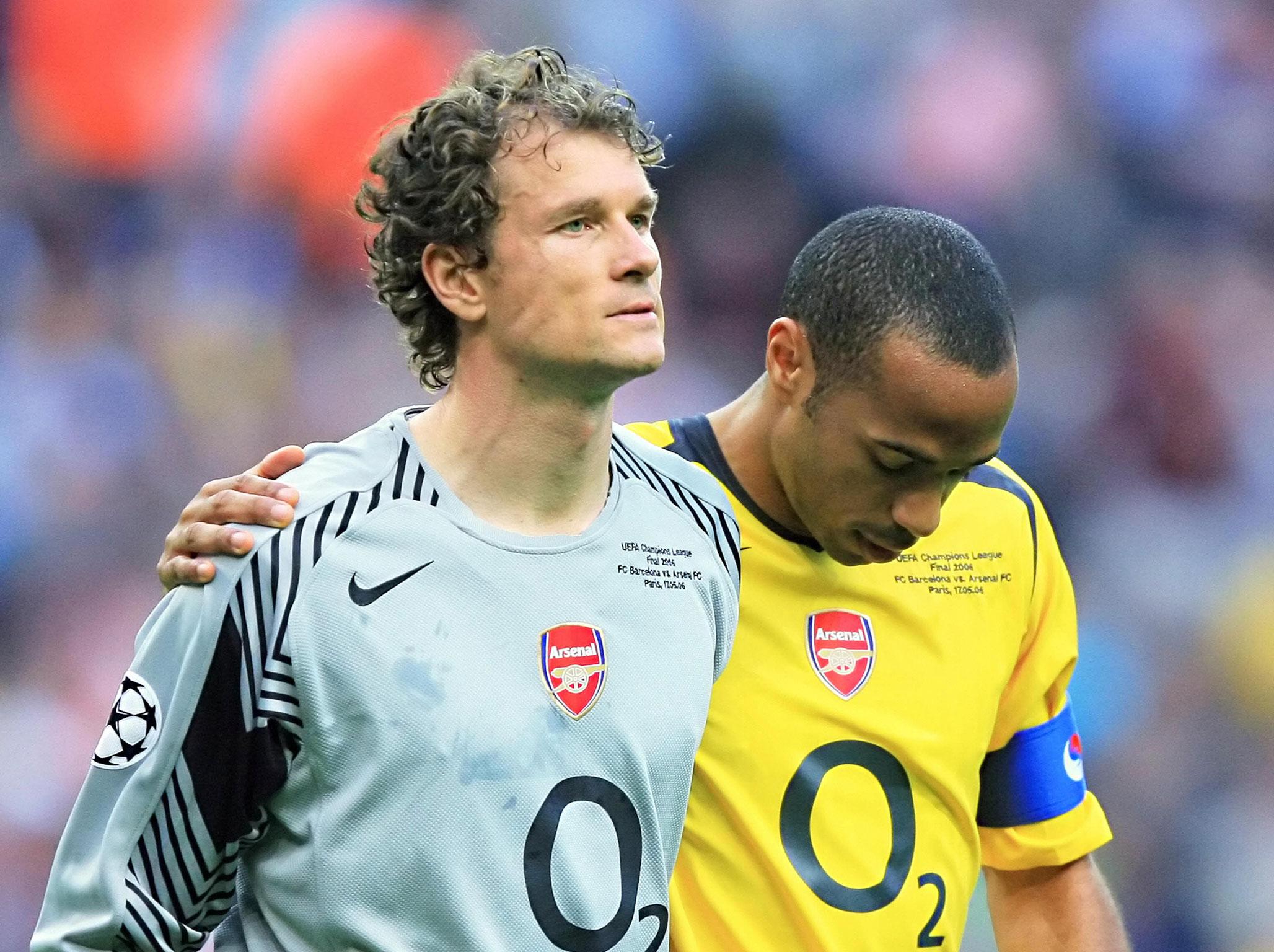
What should be a further frustration is that Wenger’s grandest achievement in Europe, when Arsenal pushed a genuinely great Barcelona so far in the 2006 Champions League final, came when he had seemed to finally adapt; when there was something different. That run had after all been built on a record-breaking defence that didn’t concede a single knockout goal until the final, as well as consequently decisive counter-attacking. When that backline was eventually breached by Samuel Eto’o, it was after a questionable onside decision and Jens Lehmann’s red card, as well as a hugely creditable Arsenal display.
Wenger didn’t really continue with that kind of canniness, though. He reverted to what he knew, even though he also knew its limitations. Now, he’s going to a situation that’s new - but one that could finally bring a new feeling of victory in Europe.
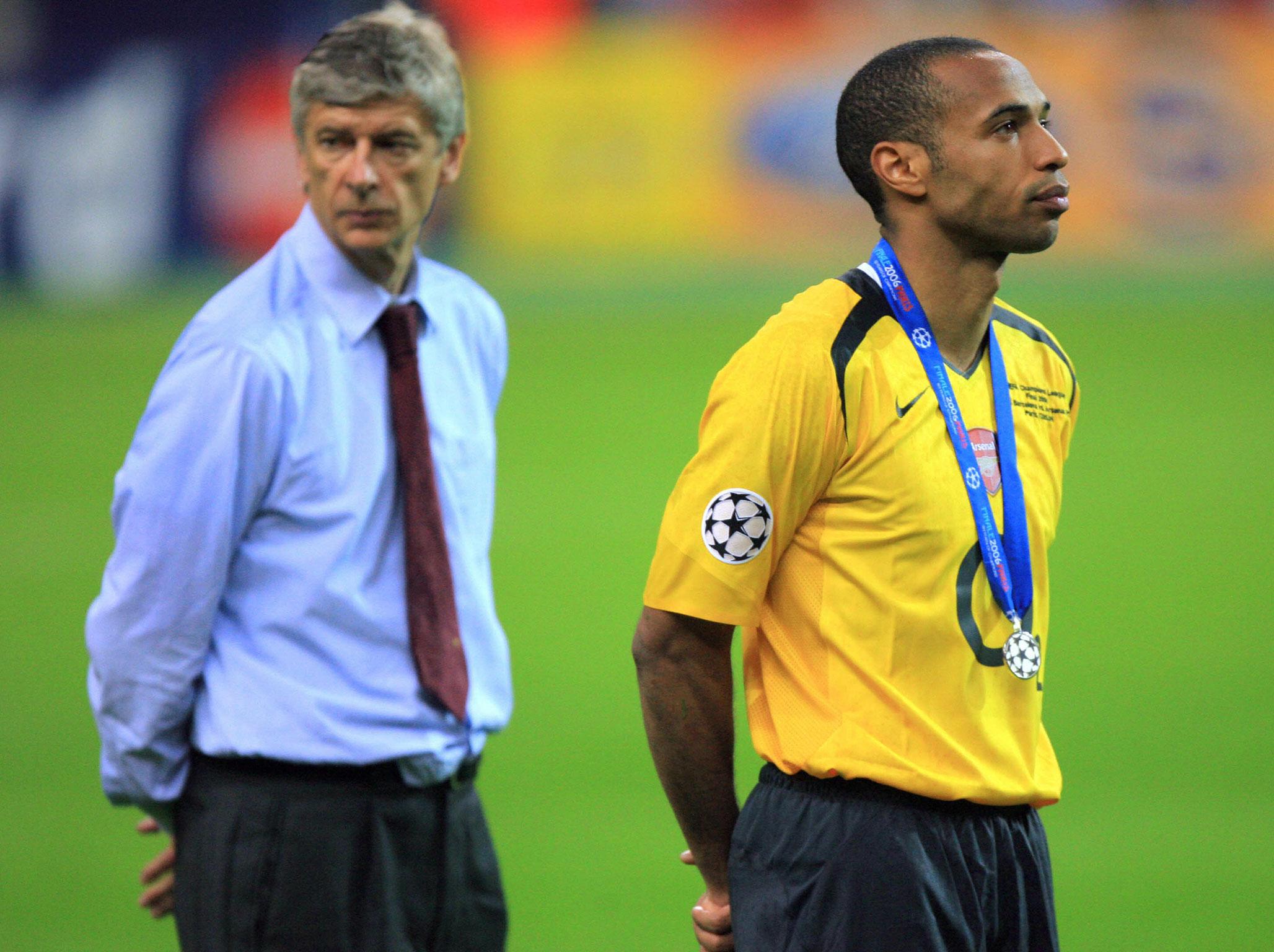
Arsenal now have a strong case to be the best side in the current Europa League, the biggest fish, the team that should justifiably be imposing their game on everyone else - even if they initially won’t play their best XI. Wenger’s thoughts on that may change, just as Jose Mourinho’s did last season. It also harks back to a thought that Adams expressed back on that 2000 flight.
“The fat lady is not singing. This team has got a couple more trophies in it yet.” So might this manager - and perhaps a trophy that he could end up appreciating more than he thinks right now.
Join our commenting forum
Join thought-provoking conversations, follow other Independent readers and see their replies
Comments